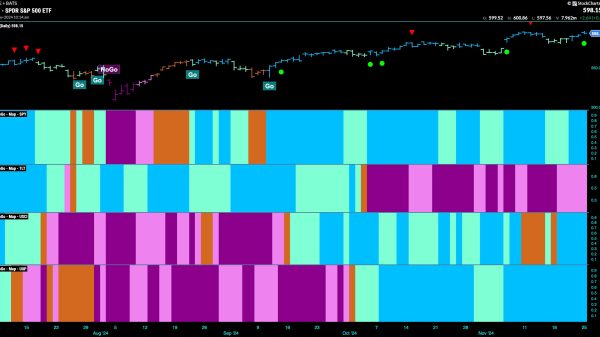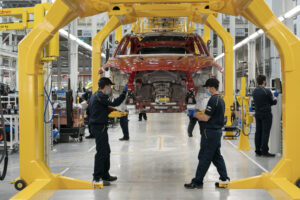Car production in Britain has plunged a further 10 per cent to new lows not seen since the 1950s, when Sir Anthony Eden was prime minister.
UK car factories produced only 775,000 vehicles in 2022, down from the 859,000 that rolled off assembly lines in 2021, itself the worst year since 1956, a year before the British automotive industry was transformed by the start of mass production of the Mini.
The latest figures mean that car factory output is down 40 per cent on pre-pandemic levels in 2019 and off 55 per cent from the most recent high of 1.72 million in 2016.
“It is not good news,” Mike Hawes, chief executive of the Society of Motor Manufacturers and Traders (SMMT), said. “And we thought 2021 was bad.”
The crisis is illustrated by the fortunes of Britain’s largest carmakers. Jaguar Land Rover, which has factories in the West Midlands and Merseyside, built only 202,000 vehicles in 2022, its lowest level in more than a decade and 63 per cent down on the 544,000 it manufactured in its UK plants in 2016.
The company has said this is a result of its conscious decision to downsize to become a “modern, luxury, lower-volume” manufacturer as it transitions its fleet to zero-emission engines. It has been particularly badly hit by the long tail of the pandemic supply chain dislocation and shortage of computer chips.
At Nissan, output at its plant in the northeast bounced 16 per cent in the year to 238,000 on the back of demand for the latest hybrid generation of its best-selling Qashqai model, but that is still less than half the 507,000 its Sunderland factory produced in 2016.
Manufacturing levels at the BMW subsidiary Mini, based at Cowley in Oxford, have remained fairly static in recent years, but production of the Toyota Corolla was down another 19 per cent at the Japanese carmaker’s Derbyshire plant at Burnaston, which is producing 44 per cent fewer cars than seven years ago. Production of the Honda Civic at Swindon in Wiltshire and the Vauxhall Astra have both ended, leaving a shortfall of more than 250,000 UK-assembled cars since the middle of the last decade.
Conversely, Britain’s luxury carmakers have never been in ruder health, both in volumes and profitability. Bentley, a Volkswagen subsidiary, produced more than 15,000 vehicles for the first time from its Crewe plant in Cheshire, while Rolls-Royce, a BMW subsidiary, went through 6,000 units for the first time, from its factory at Goodwood in West Sussex.
Hawes said British factories had been worse hit than their European counterparts from supply chain issues covering semiconductors, components from Covid-hit Chinese factories and wiring harnesses from war-torn Ukraine.
Industry volumes, he said, had also been affected by soaring energy costs — 80 per cent higher than French and German factories — and a tight labour market in which costs are going up at a time when there is also a shortage of software engineers.
Hawes warned that “the churn of prime ministers, chancellors and ministers” had given Britain an air of economic instability that was also affecting investment decisions.
He said the industry was also concerned about regulatory uncertainty, with tightening “rules of origin” requirements meaning that more parts have to be sourced locally, or 10 per cent import and export taxes would be imposed, for instance; while there was an, as yet undetailed, government “ZEV mandate” from 2024 in which manufacturers’ sales in the UK are expected to have to be at least 22 per cent zero-emission vehicles or else penalties will be imposed.
He further warned that America’s Inflation Reduction Act, which offers sweeteners to global carmakers to take electric vehicle production to the US, could also affect any future investment in Britain.
Despite all that, the SMMT is forecasting a small bounce in total production of cars this year to 842,000 as part of a longer-term recovery.
Read more:
Car industry in reverse as output crashes to lowest level in 70 years
























